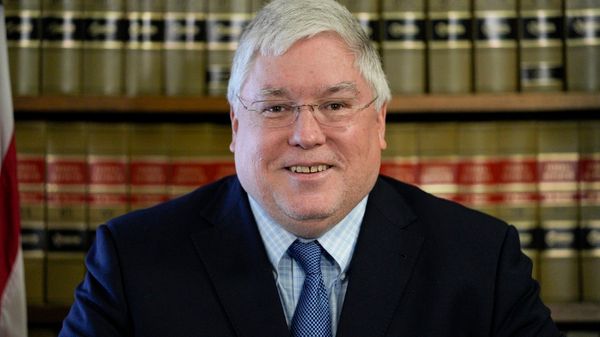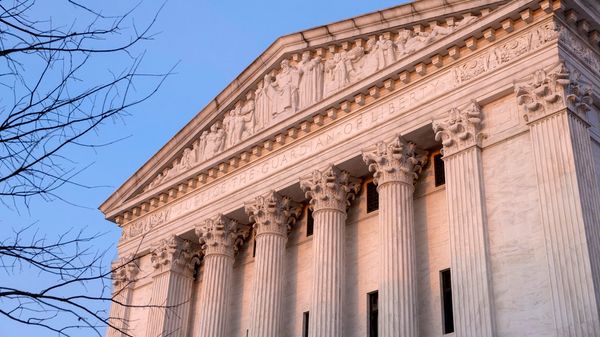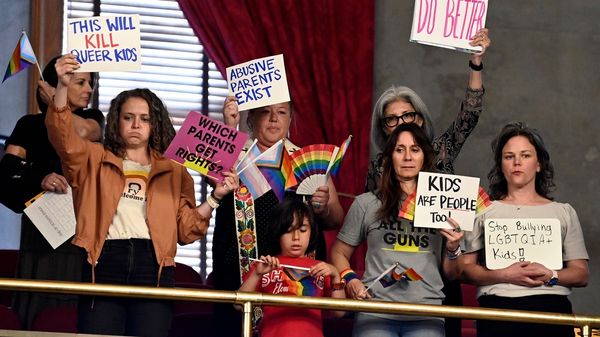July 30, 2010
Orthodox Jews' Anti-Gay Stance Continues to Soften
Kilian Melloy READ TIME: 3 MIN.
Orthodox Judaism may be coming closer to acceptance of gays with the signing of a "statement of principles" by 100 Orthodox rabbis and teachers. But philosophical disparities still yawn between the moderates--such as those who signed the statement--and the more conservative, often anti- gay, haredi, the branch of Orthodox Judaism that excoriates gays and compares them to animals, reported the Jerusalem Post on July 30.
The statement declares that gays are, like heterosexuals, made in God's image and therefore are deserving of the respect due all human beings. However, the document also rejects family parity for gay and lesbian couples, and--in a parsing of sexuality that echoes the view of the Roman Catholic Church--declares that sexual urges toward members of the same gender are not sinful in themselves, although acting on those urges is wrong.
Another seeming paradox: the statement urges that children being raised by same-sex parents not be looked down upon, even if their parents' relationship is viewed as improper.
The Jerusalem Post noted that the signing of the statement took place on July 29, only days before the Aug. 1 anniversary of a savage shooting attack on a GLBT youth center in another Israeli city, Tel Aviv that left two young people dead. The killer remains at large.
This year's Pride parade in Jerusalem also took place on July 29, noted the article, and the city's deputy mayor, Yitzhak Pindrus, who is a haredi, obtained permission for anti-gay protestors to dog the parade with donkey-shaped placards as a reminder that the more conservative elements among Orthodox Jews view gays as little more than "beasts."
An Associated Press article on the Pride parade noted that anti-gay protesters also carried signs proclaiming, "Gays Play in Hell, Not Jerusalem."
March organizers referred to thus year's event as an occasion of "mourning" in recognition of the shooting attack in Tel Aviv. The event itself has been the site of violence in the past; five years ago, a haredi extremist stabbed three people who were marching in the parade. On other occasions, rioting by haredi broke out in the streets. In 2007, a police vanguard found itself under attack by the extremists, who hurled stones at the officers, injuring six of them.
Orthodox Judaism generally rejects gays as being deliberately "perverse" or defiant of God's law. But some among the Orthodox community are beginning to offer a different approach to gay men, suggesting that they be provided with wives and therapy, even while still being allowed to have celibate relationships with male significant others.
That is a concept that, when compared with other ideas set forth by the Orthodox community, seems radical. Indeed, some Orthodox sects refuse to speak of gays, or even to admit that gays exist. In many cases, Orthodox factions deny that homosexuality is a sexual orientation, seeing it as a flouting of God's law that should be punished.
In the wake of the Tel Aviv shooting last year, a writer for the Web site Tzofer indicated a belief that the shooter had only gotten a good start: Tzofer contributor Yisrael Artzi called for the center's management to face a firing squad, reported the San Francisco Sentinel in an Aug. 21, 2009 article.
Artzi was responding to a demand for a retraction of an earlier article that appeared under his byline, in which the content of a letter from an unidentified writer was posted.
The letter assumed that the people running the gay youth center were molesting the youths who turned to the center, and called for an investigation and criminal charges against the center's management.
Rather than offer any retraction, Artzi compared gays to animals, and railed on GLBT visibility, writing, "These perverts take everything out into the street, into the public domain." Added Artzi, "A child, religious or secular, doesn't need to know they exist."
But other Orthodox rabbis have begun to look at homosexuality as an innate aspect of gays, rather than a choice to be deliberately offensive to God. A San Francisco Sentinel article from Aug. 25, 2009 that reprinted an article from Haaretz.com reported that Rabbi Menachem Burstein had a comparatively compassionate view on gays.
Burstein did not endorse GLTB visibility--"I say to them, remain in the closet and I will make every effort to build as large and respectable a closet as possible for you," he was quoted as saying--but he did offer the opinion that a small fraction of gays were not simply acting out in perverse defiance, but were inherently attracted to others of the same gender.
Burstein reckoned that those souls also deserved pastoral care. "I believe these are a small number, but we should not forsake them," the article quoted him as saying.
Kilian Melloy serves as EDGE Media Network's Associate Arts Editor and Staff Contributor. His professional memberships include the National Lesbian & Gay Journalists Association, the Boston Online Film Critics Association, The Gay and Lesbian Entertainment Critics Association, and the Boston Theater Critics Association's Elliot Norton Awards Committee.






